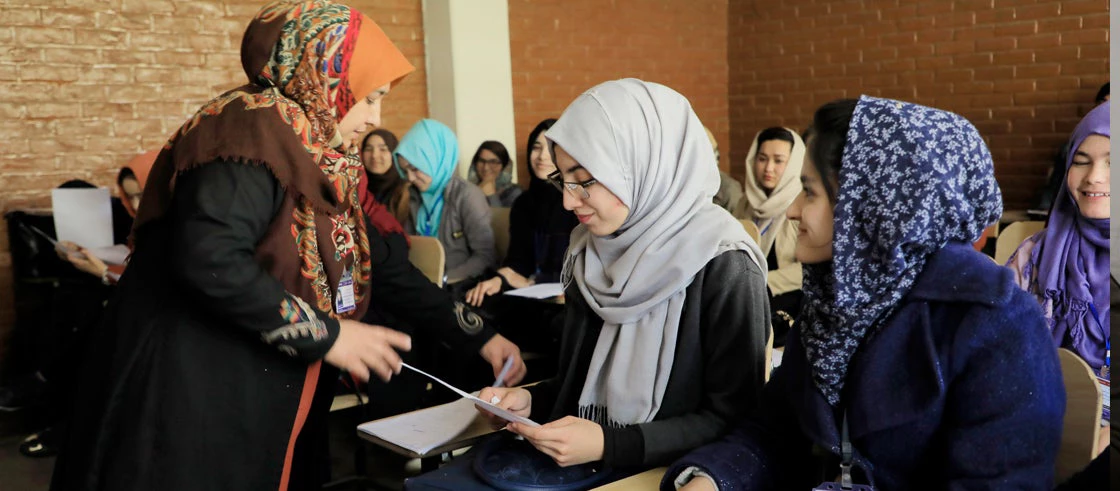 Civil Service Reform Commission
Civil Service Reform Commission
But things look different now.
Wajiha Rasuli, who now heads the Directorate of Women's Affairs in the southern Helmand province, an area heavily affected by war and conflict, has become a symbol for Afghan women.
Nabila Habibi is employed in one of the government's departments in Afghanistan's Sari Pul province. As the head of the Directorate of Women's Affairs, she engages with stakeholders and civil society activists to fight violence against women. Habibi started as a women's rights activist and helped other Afghan women access higher education.
Afghanistan's Civil Service Reform Commission provides access to the internet and computers and guides female candidates through the civil service online recruitment process.
Wajiha and Nabila joined the Afghanistan civil service thanks to the country's Civil Service Reform Commission (IARCSC), which provides access to the internet and computers, and guides female candidates through the civil service online recruitment process.
"The online application and exams facility of the Commission are the only reason I got into this position which I had not expected," says Wajiha, who had no connections with high-ranking officials or adequate resources to pitch her way into Helmand's government institutions.

TAGHIR has helped appoint 76 female civil servants at the manager, director, and director-general levels. The project aims to increase women's representation in high-ranking positions from 7.5 percent in 2018 to 10 percent by the end of 2022.
Training programs are also available to help junior and mid-ranking women employees move up the career ladder. Female middle managers can apply for a 14-month professional development program, which boosts their eligibility for higher-level positions.
The Commission biometric registration indicates that nearly a third of public institutions employees are women.
Despite all these achievements, Afghan women still face systemic and social challenges to enter the civil service and make their way to leadership positions. One major hurdle is access to higher education, which offers a clear pathway to careers in civil service.
While civil service reforms have helped improve gender diversity in Helmand's government institutions, Wajiha acknowledges that women's lower education levels put them at a disadvantage compared to male candidates.

Efforts to increase women's presence in the civil service have brought up the urgency to boost female enrollment in higher education, especially in fields such as technology, monitoring, and evaluation, as well as budget and program management. Projects supported by the World Bank and the Afghanistan Reconstruction Trust Fund I (ARTF) have helped the Afghan government address one of the root causes of women's underrepresentation in the civil service.
World Bank supported projects have helped hundreds of young Afghan women to attend higher education and acquire the skills for a professional career.
Farzana Yousofi is one of them. She was awarded a scholarship through ASDP II and earned a bachelor's degree from Donya University that paved the way for a position at the Ministry of Finance, where she now serves as a control management employee. The scholarship was a tremendous opportunity, says Farzana, and helped her overcome economic hardship and pursue her college education. She's now studying for a master's degree with support from ASDP II. To date, the project has provided over 4169 scholarships of which 1372 of them are women.
Wajiha, Nabila, and Farzana's stories of determination and grit inspire us to redouble our efforts to create more opportunities for women to join—and reach senior levels—in the Afghan civil service and the rest of the workforce. More such examples of female leaders in public life hold the keys for a more inclusive and prosperous future in Afghanistan.



Join the Conversation